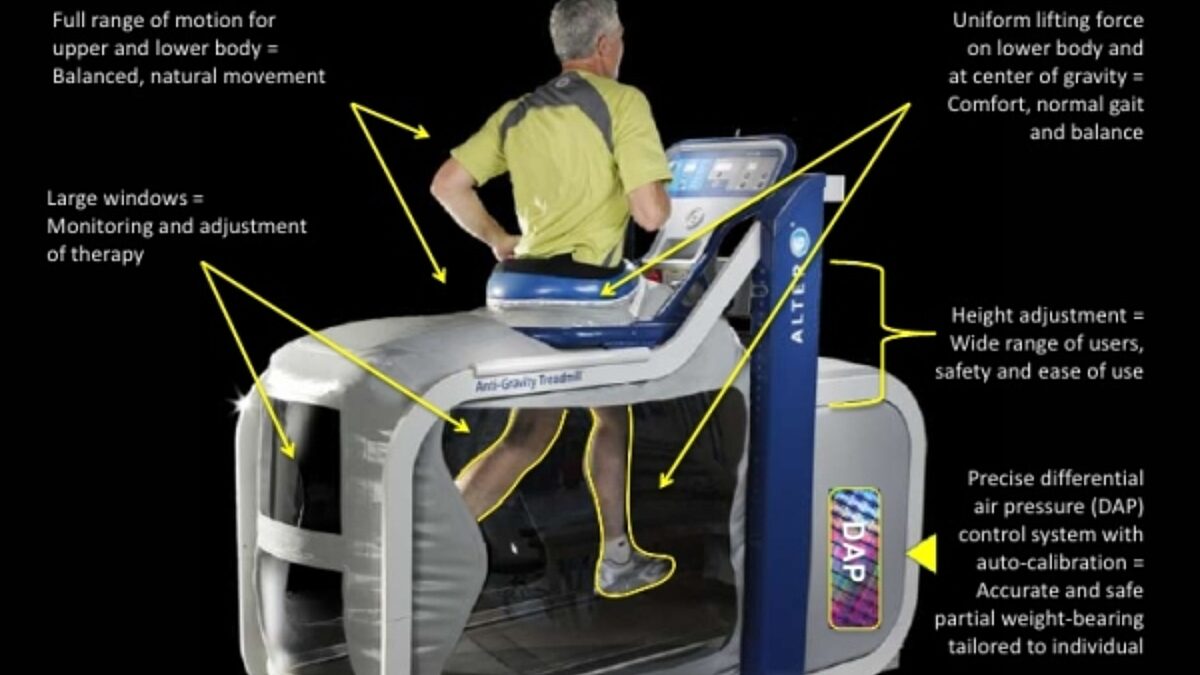
Recent Posts
Physical Therapy Helps Prepare Bariatric Patients for Surgery
Most people recognize that an exercise program is critical to weight management and weight loss. But for adult obese patients who are prospects for bariatric or orthopedic surgery, this concept is a double-edged sword.
Exercise to achieve weight loss is necessary to prepare for both types of surgery and improve outcomes.
For bariatric patients, it means they are more likely to keep the weight off. For orthopedic patients, it means the joint surgery is more likely to be successful.
But how can you lose weight if you struggle to exercise? And how can physical therapy help?
Part of our goal as physical therapists is to encourage appropriate exercise levels—for everyone. But it can be frustrating for obese patients to feel like they can make any gains in this area.
That doesn’t have to be the case, however. Advances in partial-weight-bearing technology, such as the AlterG Anti-Gravity Treadmill™, give obese patients a taste of success while minimizing risk of injury.
Here are 3 ways obese orthopedic and bariatric surgery candidates can use physical therapy to improve patient outcomes before and after surgery.
#1 Reduce Pain During Exercise
The body is built for movement. And exercise on a treadmill is a great way to get obese patients moving. In fact, the treadmill is one of the best pieces of equipment for burning calories and weight loss.
However, a major stumbling block is the pain of stress on the joints due to excess weight, especially if that pain is so bad that our patients are considering joint surgery.
They may want to avoid exercise at all costs because they fear more pain and don’t want to risk further injury. Low-impact exercises can successfully address these concerns. Partial-weight-bearing equipment like the AlterG Anti-Gravity Treadmill allows us to adjust your weight so that up to 80% of it is supported by the treadmill. This in turn reduces joint stress and pain, which means you can more comfortably perform regular exercise.
#2 Lower Risk Of Complications
Surgery always comes with risks, regardless of weight. However, obese patients preparing for orthopedic or bariatric surgeries run a greater risk of complications.
For bariatric surgery patients, exercise that results in weight loss means better mobility and less joint stress. It also means better cardiovascular health, which results in fewer complications that may arise during and after the procedure.
Joint surgery candidates with a body mass index, or BMI, of more than 40 are more likely to have serious complications during and after surgery than their counterparts of normal weight.
In knee arthroplasty patients, for example, obesity increased infections and also required second joint surgeries.
Other complications for obese patients,
- Locating veins for anesthesia and medications
- Ensuring sufficient oxygen and airflow
- Poor wound healing
- Blood clots
Weight loss before the procedure can reduce the likelihood of these types of complications occurring. Plus, it increases the chances of the surgery’s success. With less weight, you will have better mobility and range of motion, and implants are less likely to fail.
Steady-state training—where you maintain a steady pace or intensity—can be highly effective for weight loss, particularly on a treadmill.
With the AlterG, steady progression is easier to achieve because joint pain is reduced during exercise.
#3 Improve Balance And Posture
Because of the amount of mass an obese patient’s skeleton must support, daily activities such as standing, reaching for an object while standing, and walking become difficult feats. It also makes you more susceptible to falls. For post-surgery patients, a simple fall could put you back in the hospital and lead to serious complications.
Since AlterG supports your lower body weight as you shift weight from one leg to the other, it can strengthen control of posture and balance mechanisms in your torso. With regular practice, you can improve your balance and posture to reduce their risk of falls.
Using partial-weight-bearing equipment like the AlterG can reduce health risks, better preparing you for orthopedic and bariatric surgery—and life after.
**Sourced from AlterG.com. Entire Article HERE.
